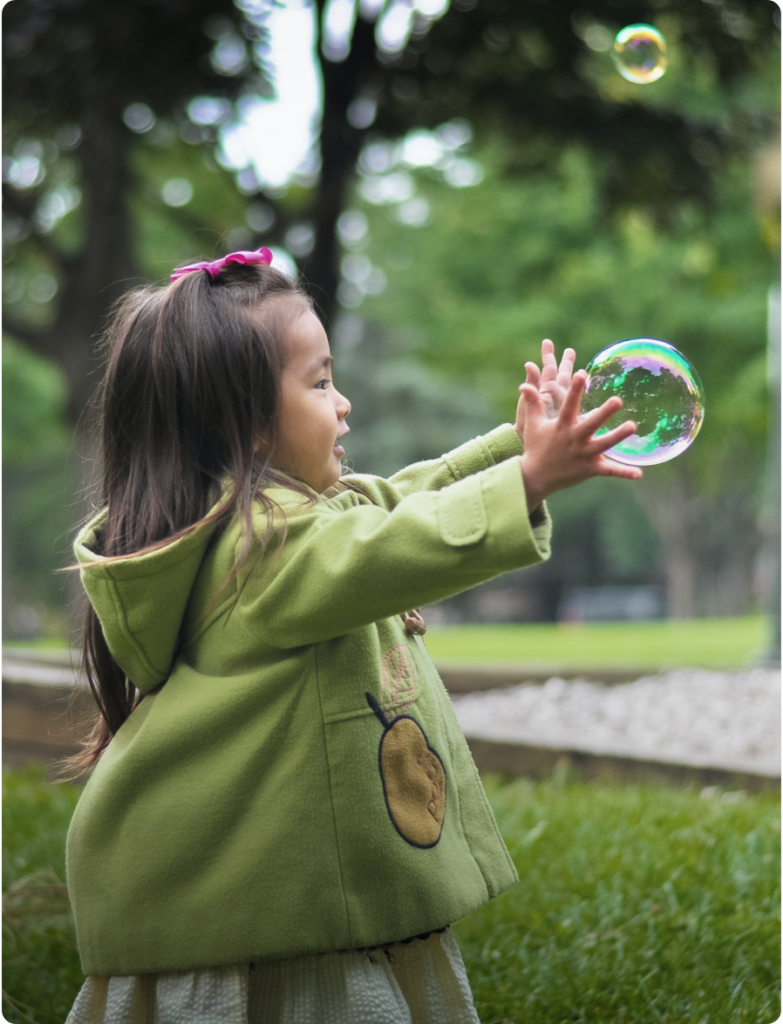All children deserve the great start that an excellent preschool provides.
Bezos Academy aims to nurture the potential in every child to become a creative leader, original thinker, and lifelong learner by increasing access to early childhood education in under-resourced communities.
Early childhood is a critical time for brain development. More than 50 years of research has proven that high-quality preschool has advantages for young children and their families.
Child Benefits


Skill Building
High-quality preschool has a lasting effect. Children see boosts in their academic, social, and emotional skills. The largest benefits exist among children facing the toughest challenges: multilingual learners, children with disabilities, and children living in poverty.3


Positive Lifelong Outcomes
Preschool creates long-term positive effects on life outcomes, including high-school graduation, years of education completed, and increased lifetime earnings.4


Family Benefits
Full-day preschool, when compared to half-day or part-time programs, yields more positive effects on student outcomes.5 For families, the benefits include more consistency and reliability.
Child care costs can also account for a significant portion of family’s budget. Full-day preschool helps working families with young children reduce their financial burden by allowing them to work. In the United States, the average cost of full-time, year-round preschool is $13,655 per child, per year.
Why Montessori
Our program model was inspired by many of the core principles of the Montessori method. These principles include children having choice in their work, maintaining a prepared environment, and using a child’s interests and movement to support learning and cognition. We believe that these principles, among others, promote creativity, independence, collaboration, and leadership.
Millions of people across all sectors of life have benefited from their Montessori educations. Below are a few notable Montessori alumni that you may recognize:
- Jeff Bezos – founder and former CEO of Amazon
- T. Berry Brazelton – pediatrician, child psychiatrist, author, and Harvard medical school professor emeritus
- Julia Child – chef, author, television personality
- Steph Curry – NBA player
- Anthony Doerr – author, Pulitzer Prize recipient
- Yo Yo Ma – Grammy award-winning cellist, United Nations Peace Ambassador, Presidential Medal of Freedom and National Medal of the Arts recipient
- Gabriel García Marquez – author, Nobel Prize in Literature recipient
- Jacqueline Kennedy Onassis – former First Lady of the United States
- Larry Page and Sergey Brin – co-founders of Google
- Will C. Smith Jr. – Maryland State Senator
- Taylor Swift – Grammy award-winning musician
- Will Wright – video game designer
- Jim Hull, “Starting out Right: Pre-K and Kindergarten,” Center for Public Education, November 2011.
- https://www.aecf.org/resources/reading-on-grade-level-in-third-grade-how-is-it-related-to-high-school-perf/
- James Heckman, “Early Childhood Education: Quality and Access Pay Off,” 2016, https://heckmanequation.org/resource/early-childhood-education-quality-and-access-pay-off/.
- Hirokazu Yoshikawa et al., “Investing in Our Future: The Evidence Base on Preschool Education Society for Research in Child Development,” Oct. 2013, https://www.fcd-us.org/assets/2016/04/Evidence-Base-on-Preschool-Education-FINAL.pdf.
- Kenneth B. Robin et al., “Is More Better? The Effects of Full-Day vs Half-Day Preschool on Early School Achievement, NIEER Working Paper,” May 2006, https://nieer.org/research-report/is-more-better-the-effects-of-full-day-vs-half-day-preschool-on-early-school-achievement.


